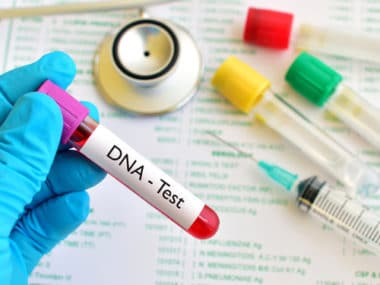Paternity Lawyer in Rochester, NY
Experienced Rochester Family Law Attorney Helping Parents Establish Paternity in New York
 In the state of New York, paternity must be established when a child is born to unmarried parents. That means if you have a child with your unmarried partner, you will have to establish paternity for the father to be legally recognized. This is important for both mothers and fathers. Mothers need to establish paternity to receive child support, and fathers must establish paternity to get custody or visitation rights. Also, establishing paternity can help the father build a relationship with his child.
In the state of New York, paternity must be established when a child is born to unmarried parents. That means if you have a child with your unmarried partner, you will have to establish paternity for the father to be legally recognized. This is important for both mothers and fathers. Mothers need to establish paternity to receive child support, and fathers must establish paternity to get custody or visitation rights. Also, establishing paternity can help the father build a relationship with his child.
This might sound like a confusing process, but The Cimino Law Firm can walk you through it. We have helped mothers and fathers establish paternity for more than 20 years, and we are here to help you as well.
It all begins with a confidential phone consultation. Call us today to find out more about establishing paternity in New York.
What Is Acknowledgment of Paternity (AOP) ? – When Both Sides Agree
If you and your partner are not married and have a child, you can sign and submit an AOP. This form establishes paternity. The father’s name is then put on the child’s birth certificate.
Unfortunately, some fathers sign AOPs, only to later realize they are not the father. The AOP can be vacated within 60 days of filing. Sometimes, though, the father does not realize the child is not his until the 60 days have passed. The AOP can still be vacated at that point, but it must be on the grounds of duress, a material mistake of fact, or fraud. It is critical to have legal counsel at your side if you need to vacate an AOP. This will help you reach the desired outcome.
How To Petition the Court to Establish Paternity?
When there is not an AOP in place, the parents must go to court to establish paternity. During the case, the mother and father can agree to acknowledge paternity. In most cases, though, the court orders a DNA test to establish paternity. DNA testing is usually done with a cheek swab or a blood test. If the test proves paternity, the court will issue an order of filiation.
While many parents wait until after the child is born, it is also possible to establish paternity beforehand. The court can order a prenatal paternity test, and if it comes back positive, paternity will be established.
What is Equitable Estoppel?
While many men can go to court and get a DNA test, that is not always the case. The other side can invoke equitable estoppel to prevent the father from obtaining a DNA test if a father-child relationship has already been established. This is usually invoked in one of two situations.
First, the other party might invoke equitable estoppel when the man has represented himself as the child’s father, and the child has come to rely on that relationship. A man can portray himself as the father in many different ways. He can:
- Pay child support
- Have the child call him “dad”
- Introduce the minor as his child
- Regularly call the child
This creates a father-child relationship. Often, the court does not want to break that relationship. It fears that a negative DNA test will harm the child. In this case, it can refuse the DNA test.
Second, the other party can invoke equitable estoppel if a man has allowed another man to act as the child’s father for a prolonged period. For example, if a man believes he is the father but does not have anything to do with the child and another man takes part in raising the child, the court might not allow a DNA test. The court believes that even if the man is the biological father, determining paternity would harm the child. A positive DNA test could ruin the bond the child has already established with the man raising him or her.
The court has the final say if a DNA test will be blocked. If you want to invoke equitable estoppel or you believe the other party will invoke it against you, it is wise to get legal representation. Equitable estoppel is considered on a case by case basis. The court looks at various factors, including the importance of knowing who the biological father is and the potential trauma a DNA test could cause the child. Our legal team can protect your rights during this process.
What Should You Do After Establishing Paternity?
Child custody and visitation can be established once paternity is considered. There are two types of child custody, which are legal and physical. Legal custody refers to making decisions for the child, and physical custody is where the child lives.
 Parents often have joint legal and physical custody, but that is not always the case. Sometimes, parents split legal custody, and one parent has primary custody and the other has visitation rights. New York is known for being flexible with visitation arrangements. The courts want the child to see both parents as often as possible if it is in the child’s best interest. That means the non-custodial parent could see the child several days a week, even without having shared custody.
Parents often have joint legal and physical custody, but that is not always the case. Sometimes, parents split legal custody, and one parent has primary custody and the other has visitation rights. New York is known for being flexible with visitation arrangements. The courts want the child to see both parents as often as possible if it is in the child’s best interest. That means the non-custodial parent could see the child several days a week, even without having shared custody.
After custody is established, the parents or courts must decide child support. The court uses a formula to determine the cost of raising the child. Then it analyzes the amount of money each parent makes and determines a support order.
Parents also have the option of determining support on their own through negotiation or mediation. The Cimino Law Firm can represent you in court, negotiate on your behalf, or preside over mediation proceedings. We will fight for you and your child during this process.
Why Is Paternity Important for the Child?
Establishing paternity provides benefits for the child. It begins with having the father’s name on the birth certificate. Also, the child will have the power to access his or her father’s medical history. This is critical for your child’s overall health. Your child needs to know if he or she is genetically predisposed to certain diseases.
The child will also benefit financially. He or she can receive health insurance from the father if necessary. Also, the child will have access to child support and enjoy other financial benefits, including inheritance rights.
Seek Legal Counsel From an Experienced Rochester Family Lawyer
The Cimino Law Firm is the right choice for your paternity case. Michelle Cimino has worked with both mothers and fathers for more than two decades. She stands out for her grasp of family law and her compassion. She helps people through the legal process while providing much-needed emotional support.
The Cimino Law Firm also understands the financial burden of paternity cases. You are likely worried about spending money to establish paternity, so we offer confidential phone consultations. You do not have to pay money upfront to find out if you have a case. You will provide us with information during your query, and we will develop a strategy on your behalf.
We also understand that it is difficult to drive very far to visit a law firm. With offices in both Rochester and Webster, we make it simple for our clients to see us.
Call us today to set up your confidential phone consultation. These cases are complicated, but with our help, you can reach your desired outcome.
Follow us on Facebook for daily updates!
